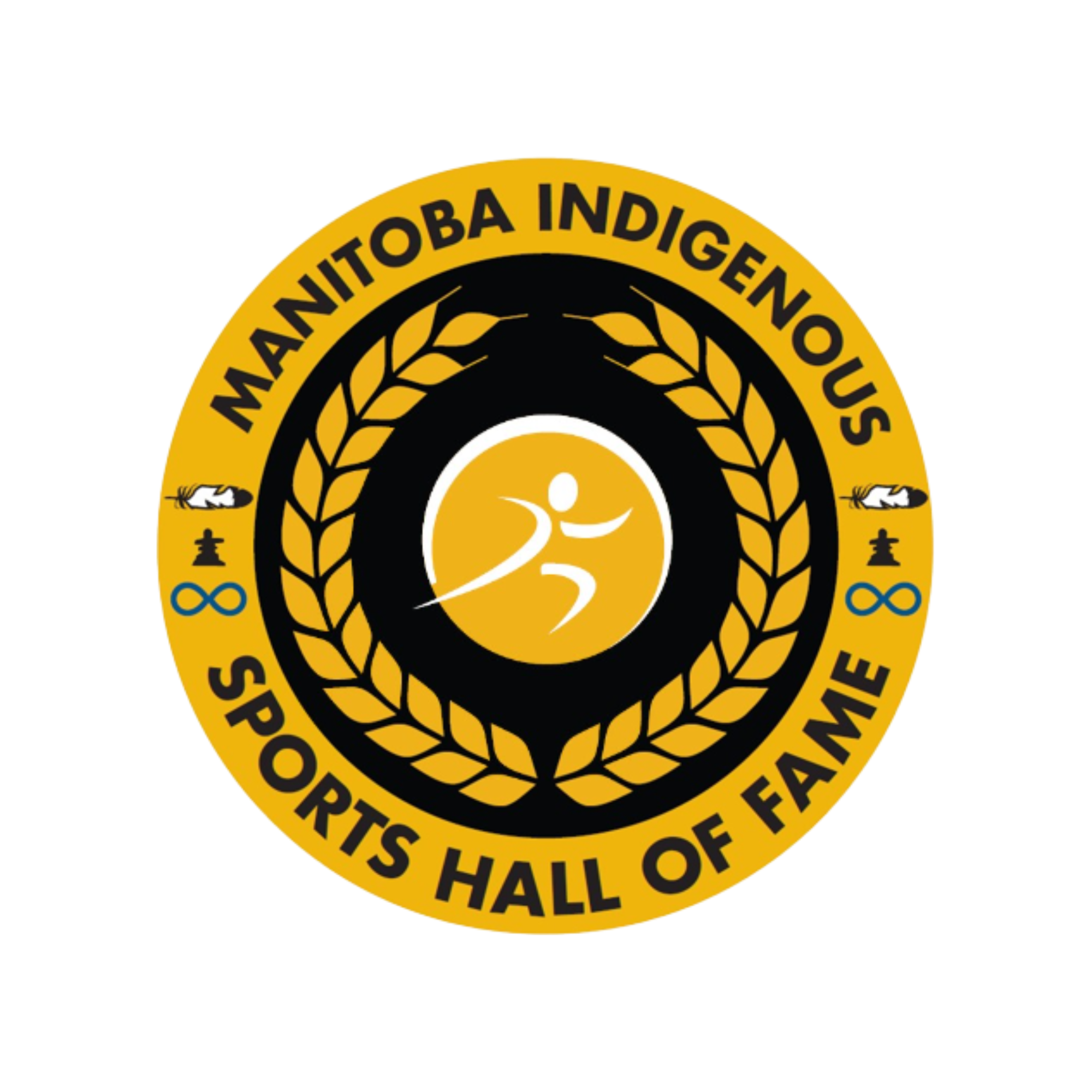
Manitoba Indigenous Sports Hall of Fame
ATHLETES
Welcome to the Athletes Section of the Manitoba Indigenous Sports Hall of Fame, a space dedicated to celebrating the remarkable achievements and contributions of Indigenous athletes who have left an indelible mark on the world of sports. Within these virtual walls, we honor the resilience, skill, and passion of individuals whose athletic prowess has not only brought pride to their communities but has also paved the way for future generations.
Each athlete enshrined in this hall of fame embodies the spirit of determination, overcoming challenges both on and off the field, and showcasing excellence in their respective disciplines. From the vast landscapes of Manitoba, these extraordinary individuals have risen to national and international prominence, leaving an enduring legacy that extends beyond the realm of sports.
Join us on this journey of celebration and recognition as we pay homage to the athletes who have not only made history but have become an integral part of the cultural fabric of Manitoba. Their stories remind us of the power of sport to unite, inspire, and transcend boundaries.
CLASS OF 2024 INDUCTEES

Ida (Clemons) Sutherland
Volleyball | Athletes
Ida (Clemons) Sutherland played for the Lord Selkirk Regional Comprehensive Secondary School Royals, one of the most successful high school volleyball teams in Manitoba's history. A member of Peguis First Nation, Sutherland rostered for Lord Selkirk between 1976 and 1978, and in her final season of play, led the team to a 58-0 record. In 1979, Sutherland was offered a scholarship to play volleyball at the University of Texas at El Paso (UTEP), an NCAA Division 1 school. In her rookie year, UTEP made an appearance at the NCAA tournament, and by her third year, she was named captain.
Ida (Clemons) Sutherland a joué pour les Royals de Lord Selkirk Regional Comprehensive Secondary School, l'une des équipes de volleyball d'école secondaire les plus titrées de l'histoire du Manitoba. Membre de la Première nation Peguis, Sutherland a porté les couleurs de Lord Selkirk entre 1976 et 1978 et, lors de sa dernière saison de jeu, a mené l'équipe à une fiche de 58-0. En 1979, Sutherland s'est vu offrir une bourse pour jouer au volleyball à l'Université du Texas à El Paso (UTEP), une école de division 1 de la NCAA. Au cours de sa première année, l'UTEP a fait une apparition au tournoi de la NCAA et à partir de sa troisième année, elle a été nommée capitaine.

Kerrie Buchberger
Volleyball I Athletes
Kerrie Buchberger, a Métis volleyball athlete born in Russell, Manitoba, represented Canada at the 1996 Summer Olympics. From 1988 and 1991, Buchberger played for the University of Regina women's volleyball team where she was named a Great Plains Athletic Conference (GPAC) All-star twice. Buchberger played for the Canadian National Women's Volleyball Team for eight seasons, competing in two Pan American Games and a World Cup. She also played five years of professional volleyball in Holland, Belgium, and France, and was inducted into the Saskatchewan Volleyball Hall of Fame in 2018.
Kerrie Buchberger, une athlète de volleyball métisse née à Russell, au Manitoba, a représenté le Canada aux Jeux olympiques d'été de 1996. De 1988 à 1991, Buchberger a joué pour l'équipe féminine de volleyball de l'Université de Regina, où elle a été nommée étoile de la Great Plains Athletic Conference (GPAC) à deux reprises. Buchberger a joué pour l'équipe nationale féminine de volleyball du Canada pendant huit saisons, participant à deux Jeux panaméricains et à une Coupe du monde. Elle a également joué cinq ans au volleyball professionnel aux Pays-Bas, en Belgique et en France et a été intronisée au Temple de la renommée du volleyball de la Saskatchewan en 2018.

Kerry Goulet
Hockey | Athletes
Born in Winnipeg, Kerry Goulet, a Métis athlete, played with the Winnipeg Grasshoppers who represented Manitoba at eight National Ball Hockey Championships, bringing home gold in 1989. Goulet also played ice hockey in Germany for sixteen seasons, and was also a general manager, and coach, where he earned 312 wins in 452 games. His jersey was eventually retired by the ETC Timmendorfer Eisbars. Goulet is the co-founder of StopConcussions, a platform dedicated to concussion awareness and education, and the organizer of the Australian Ice Hockey Classic, an initiative to support ice hockey around the world.
Né à Winnipeg, Kerry Goulet, un athlète métis, a joué avec les Grasshoppers de Winnipeg qui ont représenté le Manitoba à huit championnats nationaux de hockey-balle, remportant l'or en 1989. Goulet a également joué au hockey sur glace en Allemagne pendant seize saisons et a également été directeur général, et entraîneur, où il a remporté 312 victoires en 452 matchs. Son maillot a finalement été retiré par l'ETC Timmendorfer Eisbars. Goulet est le co-fondateur de StopConcussions, une plateforme dédiée à la sensibilisation et à l'éducation sur les commotions cérébrales, et l'organisateur de l'Australian Ice Hockey Classic, une initiative visant à soutenir le hockey sur glace dans le monde.

Terry Fox
Athletics | Athletes
Terry Fox, born in Winnipeg, Manitoba, is a Métis athlete and cancer research advocate, who at eighteen, lost his right leg to cancer. In 1980, Fox began training for the Marathon of Hope, and ran 5,375 kilometers in 143 days to raise money for cancer research. In 1981, Terry Fox passed but not before raising 24.17 million for cancer research. That same year, the Terry Fox Run debuted in more than 750 locations, and in 1988, the Terry Fox Foundation was established, cementing Fox's legacy as a humanitarian and advocate for cancer awareness and research.
Terry Fox, né à Winnipeg, au Manitoba, est un athlète métis et défenseur de la recherche sur le cancer qui, à dix-huit ans, a perdu sa jambe droite à cause d'un cancer. En 1980, Fox a commencé à s'entraîner pour le Marathon de l'espoir et a couru 5 375 kilomètres en 143 jours pour collecter des fonds pour la recherche sur le cancer. En 1981, Terry Fox est décédé, mais pas avant d'avoir récolté 24,17 millions de dollars pour la recherche sur le cancer. La même année, la Course Terry Fox a débuté dans plus de 750 endroits et, en 1988, la Fondation Terry Fox a été créée, consolidant ainsi l'héritage de Fox en tant qu'humanitaire et défenseur de la sensibilisation et de la recherche sur le cancer.
CLASS OF 2023 INDUCTEES
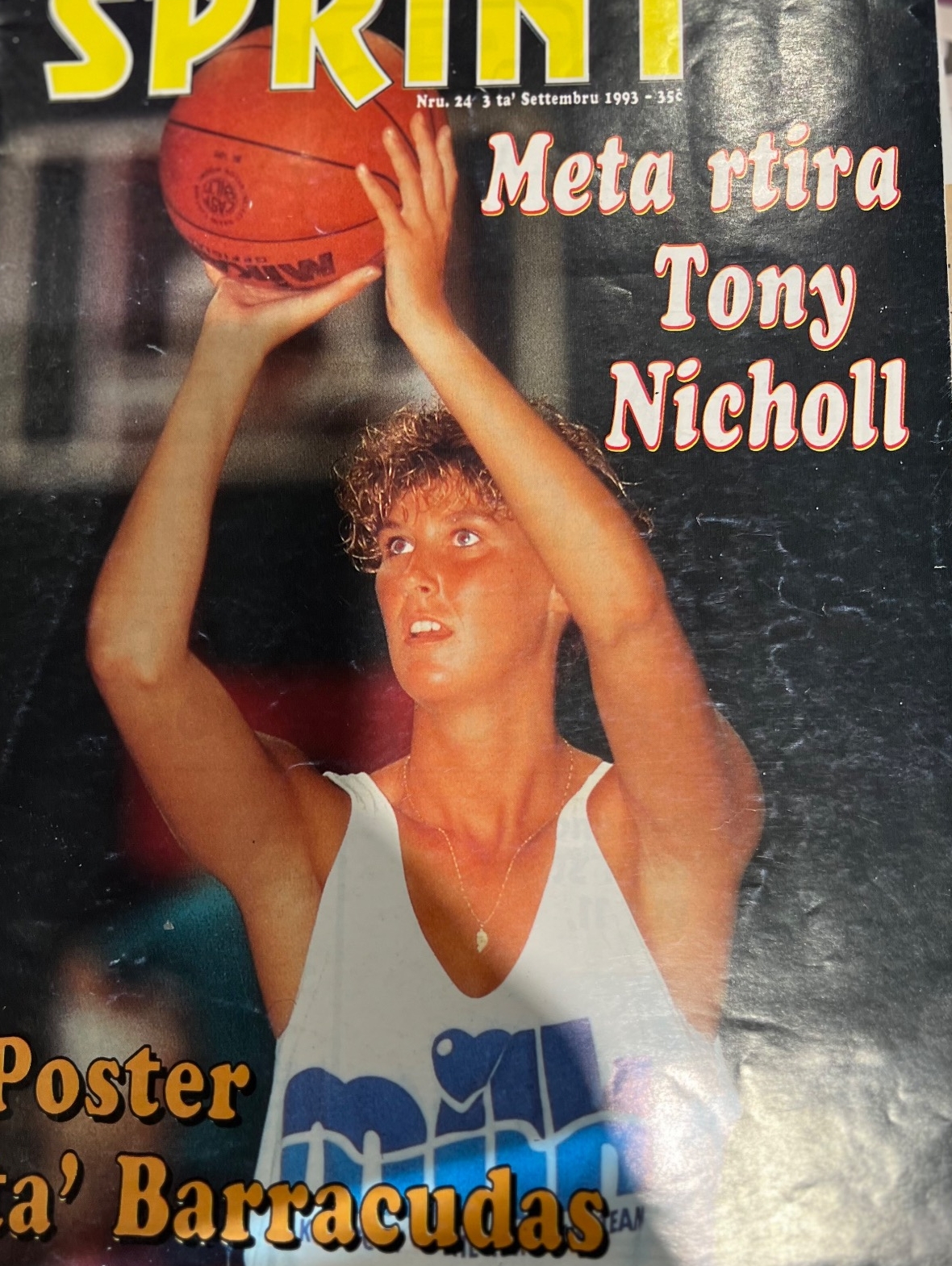
Michelle Foreman
Basketball I Athletes
Michelle Foreman (nee Chambers) played for the University of Winnipeg Wesmen from 1988-1993. In 1992, her team was crowned Champion of the Great Plains Athletic Conference (GPAC). The following season, Foreman's Wesmen earned these honours once again, but were also Canadian Interuniversity Athletic Union (CIAU) National Champions. In 1993, Foreman was named MVP at the Canadian Interuniversity Sport (CIS) National Tournament and was selected as a Second Team All-Star. In that same year, Foreman represented the country of Maltese at the European World Cup. Michelle is Métis and a member of the Interlake Local.
Michelle Foreman (née Chambers) a joué pour les Wesmen de l'Université de Winnipeg de 1988 à 1993. En 1992, son équipe a été couronnée championne de la Great Plains Athletic Conference (GPAC). La saison suivante, les Wesmen de Foreman ont de nouveau remporté ces honneurs, mais ont également été champions nationaux de l'Union sportive Interuniversitaire Canadienne (USIC). En 1993, Foreman a été nommé joueur par excellence du tournoi national de Sport Interuniversitaire Canadien (SIC) et a été sélectionné comme deuxième équipe d'étoiles. Cette même année, Foreman a représenté le pays maltais à la Coupe du monde européenne. Michelle est métisse et membre de la section locale d'Interlake.
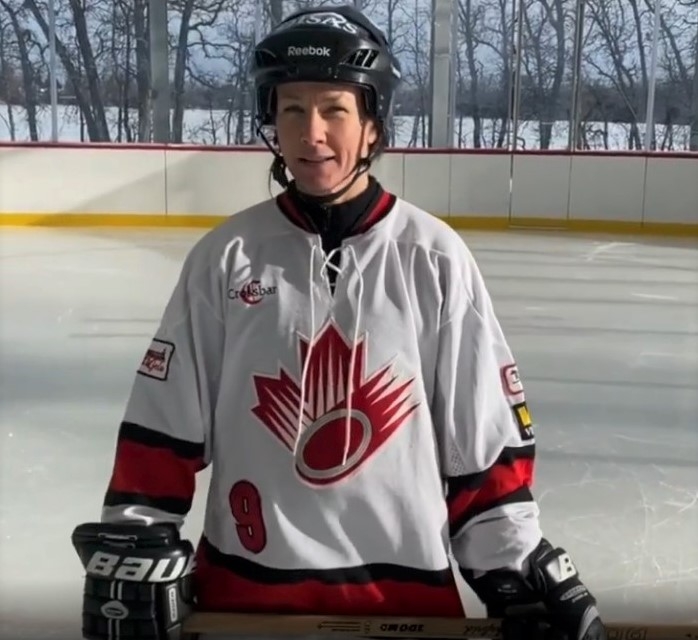
Shelly Hruska
Ringette I Athlete I Coach I Teacher
A Metis athlete from Winnipeg, Manitoba, Hruska participated in both ringette and bandy. In 1999, Hruska represented Team Manitoba and earned silver at the Canadian Winter Games. In 2002, she was selected to Canada's National Ringette Team that won gold at the World Ringette Championships. Two years later, Hruska won gold again the World Ringette Championships. In 2004, she received the Manitoba Youth Achievement Award, and the following year, the Tom Longboat award. In 2009, Hruska competed at the World Bandy Championships, earning silver, and in 2016, was inducted into the Ringette Manitoba Hall of Fame.
Athlète métisse de Winnipeg, Manitoba, Hruska a participé à la fois à la ringuette et au bandy. En 1999, Hruska a représenté l'équipe du Manitoba et a remporté l'argent aux Jeux d'hiver du Canada. En 2002, elle a été sélectionnée dans l'équipe nationale de ringuette du Canada qui a remporté l'or aux Championnats du monde de ringuette. Deux ans plus tard, Hruska a encore remporté l'or aux Championnats du monde de ringuette. En 2004, elle a reçu le Manitoba Youth Achievement Award et, l'année suivante, le prix Tom Longboat. En 2009, Hruska a participé aux Championnats du monde de bandy, remportant l'argent, et en 2016, a été intronisée au Temple de la renommée de Ringuette Manitoba.
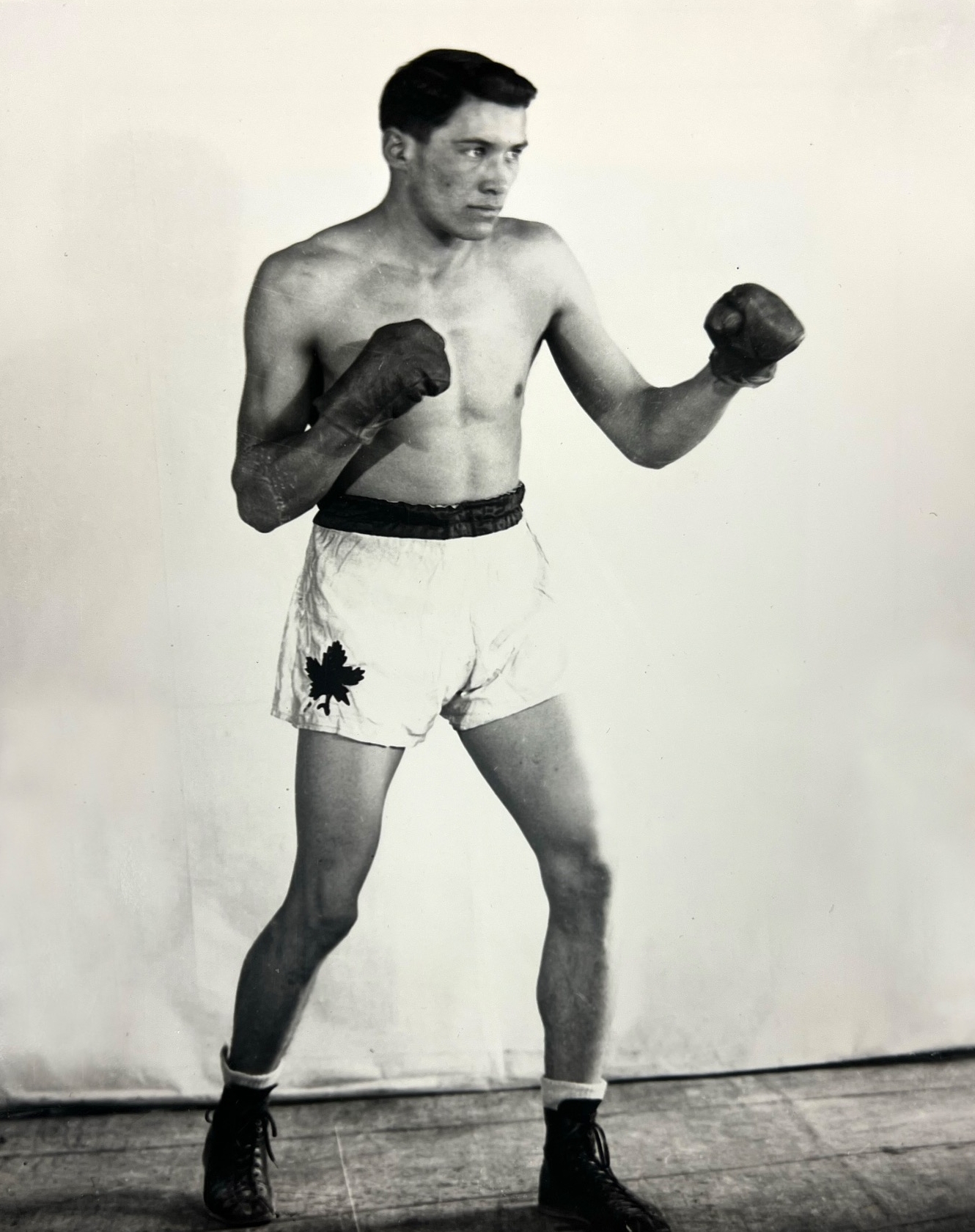
Maurice Camyre
Boxing I Athletes
A tenacious Métis boxer from St. Vital, Manitoba, Camrye won the Dominion Amateur Welterweight Championships in 1935, and was a recipient of the Golden Gloves Award that same year. In 1936, he represented Canada at the Olympic Games in Berlin, Germany. Following his Olympic debut, he turned professional, and in 1977, Camyre was inducted into the Canadian Boxing Hall of Fame.
Un boxeur métis tenace de St. Vital, Manitoba, Camrye a remporté les championnats du Dominion amateur des poids welters en 1935 et a été récipiendaire du Golden Gloves Award la même année. En 1936, il représente le Canada aux Jeux olympiques de Berlin, Allemagne. Après ses débuts olympiques, il est devenu professionnel et, en 1977, Camyre a été intronisé au Temple de la renommée de la boxe canadienne.

Jamie Leach
Hockey I Athletes
Born in Winnipeg in 1969 and a member of Berens River First Nation, Jamie Leach, won two Stanley Cups ('92 and '93), an AHL Calder Cup ('96), two Hockey Canada Allan Cups ('03 and '06) and two British Elite League championships ('99 and '00) in a 20-year hockey career. In 2006, playing for the Powell River, B.C. Royals, Leach won the Canadian Senior Amateur Championship. Leach is one of the few athletes, Indigenous or non-Indigenous, to have won a Stanley Cup, Calder Cup and Allan Cup.
Né à Winnipeg en 1969 et membre de la Première Nation de Berens River, Jamie Leach a remporté deux coupes Stanley ('92 et '93), une coupe AHL Calder ('96), deux coupes Hockey Canada Allan ('03 et '06) et deux championnats de la British Elite League ('99 et '00) dans une carrière de hockey de 20 ans. En 2006, jouant pour le Powell River, en Colombie-Britannique Royals, Leach a remporté le Championnat Canadien senior amateur. Leach est l'un des rares athlètes, autochtones ou non, à avoir remporté une coupe Stanley, une coupe Calder et une coupe Allan.
CLASS OF 2022 INDUCTEES
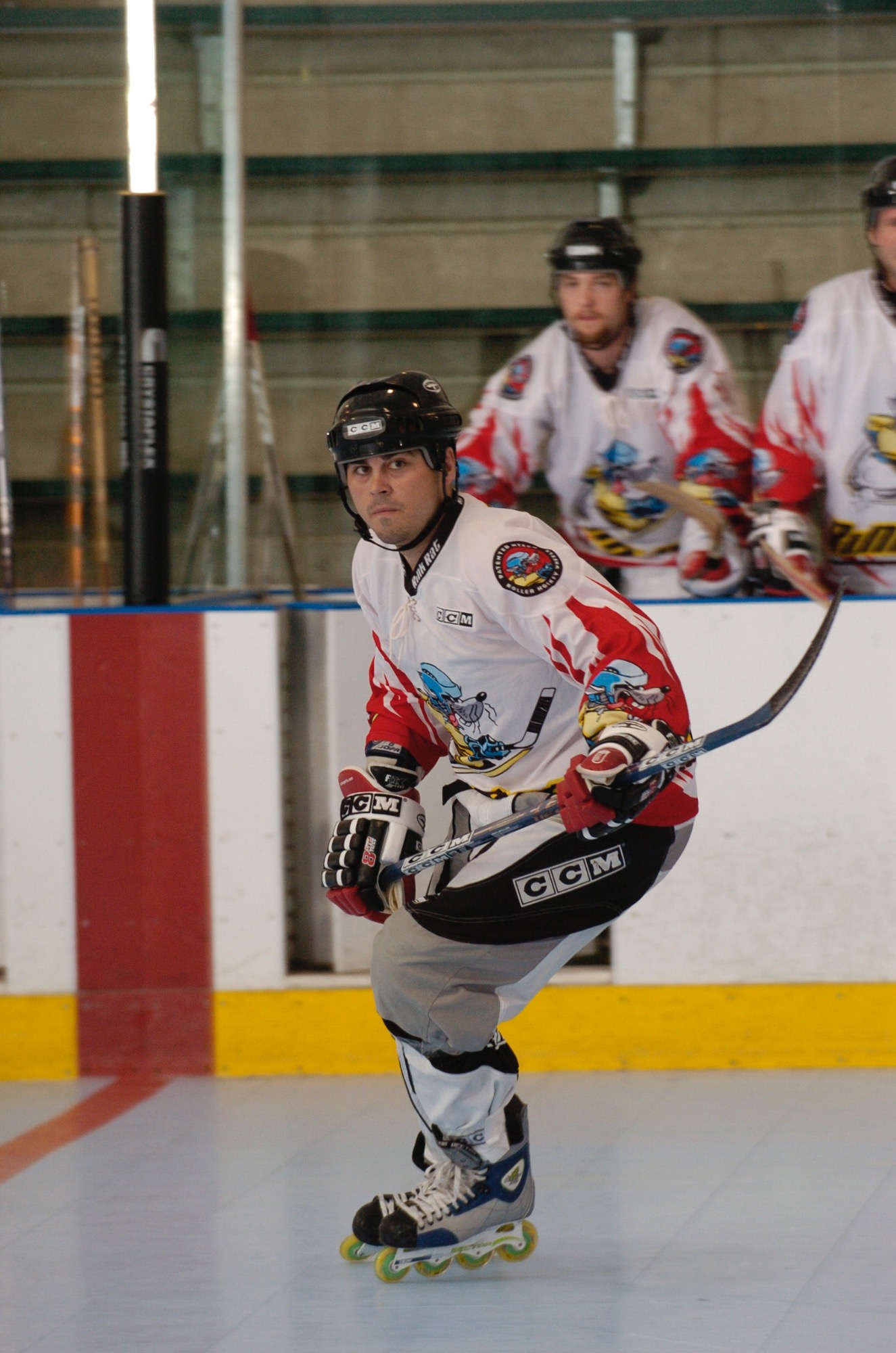
Michael Hunt
Inline Hockey Athlete | Coach | Builder
Winnipeg's Michael Hunt (Metis) is regarded as one of Canada's greatest roller hockey players and one of the World's top Masters players. He has competed at 11 International Championships with Team Canada and was a seven-time National Professional Champion with the legendary Team Rink Rat.
Michael Hunt (Métis) de Winnipeg est considéré comme l'un des plus grands joueurs de hockey à roulettes du Canada et l'un des meilleurs joueurs de maîtrise au monde. Il a participé à 11 championnats internationaux avec Équipe Canada et a été sept fois champion national professionnel avec le légendaire Team Rink Rat.
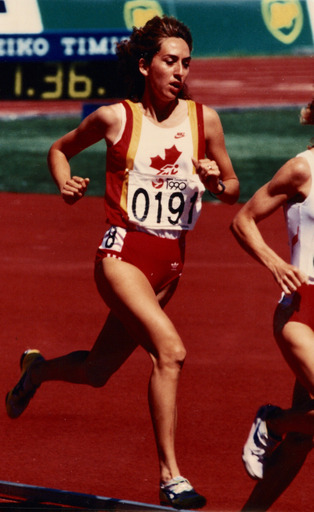
Angela Chalmers
Athletics | Athlete
An Olympic Bronze Medalist (Barcelona 1992), Chalmers is originally from Brandon and is a member of Manitoba's Birdtail Sioux Dakota Nation.
In the Sioux language, her name is Dusmanwe, which means, "Walk Fast Woman." She participated in one Pan American Games, two Commonwealth Games, and two Olympic Games. In 1995 she received the National Aboriginal Achievement Award in Sports and in 2001, she was inducted into the Manitoba Sports Hall of Fame.
Médaillé olympique de bronze (Barcelone 1992). Chalmers est originaire de Brandon et est membre de la nation Birdtail Sioux Dakota du Manitoba.
En langue Sioux, son nom est Dusmanwe, ce qui signifie «Marchez vite femme». Elle a participé à un Jeux panaméricains, à deux Jeux du Commonwealth et à deux Jeux olympiques. En 1995, elle a reçu le National Aboriginal Achievement Award in Sports et en 2001, elle a été intronisée au Manitoba Sports Hall of Fame.

Theoren Fleury
Ice Hockey | Athlete
Theoren Fleury (Metis) from Russell, Man., is one of only 15 players in NHL history to average more than a point per game in both the regular season and the Stanley Cup playoffs. He played on Calgary's 1989 Stanley Cup championship team. Theo represented Canada in five international competitions including two IIHF World Junior Championships, two World Championships, one World Cup of Hockey, and two Olympics winning a gold medal in 2002. He was inducted into the Manitoba Hockey Hall of Fame in 2019.
Theoren Fleury (Métis) de Russell, au Manitoba, est l'un des 15 jouers de l'histoire de la LNH â avoir accumulé en moyenne plus d'un point par match en saison réguliere et en séries éliminatores de la Coupe Stanley. Il a joue dans l'équipe de championnat de la Coupe Stanley de Calgary en 1989. Theo a répresenté le Canada dans cinq compétitions internationally, don't deux Championnats du monde juniors de I'IIHF, deux Championnats du monde, June Coupe du monde de hockey et deux Jeux olympiques en remportant une médaille d'or en 2002. Il a été intronisé au Temple de la renommée du hockey du Manitoba en 2019.
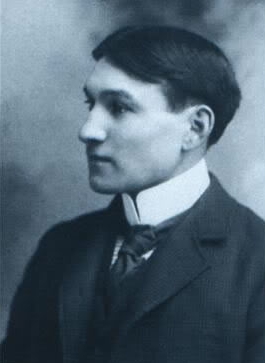
Antoine Blanc Gingras
Ice Hockey I Athlete
Born in St. Boniface in 1875, Antoine (Tony) Gingras was named after his grandfather - a wealthy Metis bison fur trader and supporter of Louis Riel during the Red River Resistance. Renowned for his speed, athleticism, and brute strength, Gingras played a vital role in the Winnipeg Victorias Stanley Cup championships of 1901 and 1902. In twelve Stanley Cup games, Gingras scored a total of nine goals, making him one of the Victorias' top scorers.
Né à Saint-Boniface en 1875, Antoine (Tony) Gingras porte le nom de son grand-père - un riche commerçant de fourrures de bisons métis et partisan de Louis Riel pendant la résistance de la rivière Rouge. Réputé pour sa vitesse, son athlétisme et sa force brute, Gingras a joué un rôle essentiel dans les championnats de la Coupe Stanley de Winnipeg Victorias de 1901 et 1902. En douze matchs de la Coupe Stanley, Gingras a marqué un total de neuf buts, faisant de lui l'un des meilleurs des buteurs des Victorias.
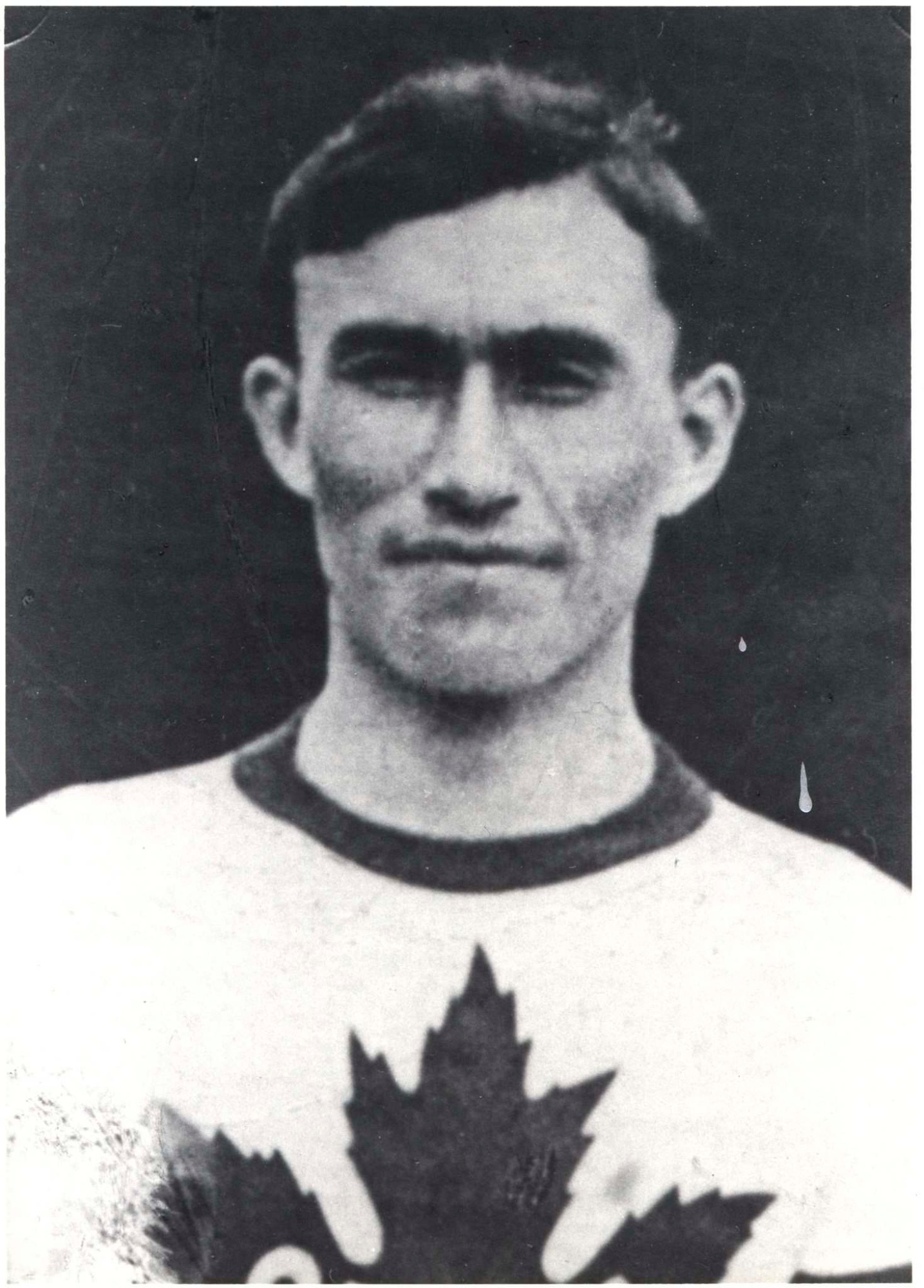
Joe Benjamin Keeper
Athletics I Athlete
Joseph Benjamin Keeper was born in 1886 at Walker Lake and was a member of Norway House Cree Nation. One of Manitoba's most talented and distinguished runners, he was forced to attend the Brandon Indian Residential School at the age of 12, and it was there, he discovered his love for long distance running. He qualified for the Canadian Olympic team in 1912 and finished ninth in the 5,000 metres and fourth in the 10,000 metres at the Stockholm Games. Keeper was inducted into the Olympic Hall of Fame in 1977 and the Manitoba Sports Hall of Fame in 1984.
Joseph Benjamin Keeper est né en 1886 à Walker Lake et était membre de la nation crie de Norway House. Un des coureurs les plus talentueux et less plus distingués du Manitoba, il a été forcé de fréquenter le pensionnat indien de Brandon à l'âge de 12 ans, et c'est là qu'il a découvert son amour pour la course de fond. Il s'est qualifié pour l'équipe olympique canadienne en 1912 et a terminé neuvième au 5 000 mètres et quatrième au 10 000 mètres aux Jeux de Stockholm. Keeper a été intronisé au Temple de la renommée des sports du Manitoba en 1984.
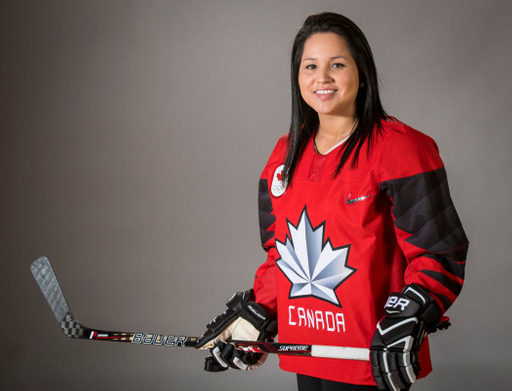
Brigette Lacquette
Ice Hockey I Athlete
Brigette Lacquette, a First Nation player from tiny Mallard, Manitoba, made it all the way to the 2018 Winter Olympics and became one of the best defenders in the country. She was the first First Nations hockey player to be named to Canada's National Women's Team. In 2009, Lacquette was the recipient of the Tom Longboat Award as Canada's Female Aboriginal Athlete of the Year.
Brigette Lacquette, une joueuse des Premières Nations de Mallard, au Manitoba, s'est rendue jusqu'aux Jeux olympiques d'hiver de 2018 et est devenue l'une desmeilleures défenseuses du pays. Elle a été la première joueuse de hockey des Premières Nations à être nommée dans l'équipe nationale féminine du Canada. En 2009, Lacquette a reçu le prix Tom Longboat en tant qu'athlète autochtone féminine de l'année au Canada.
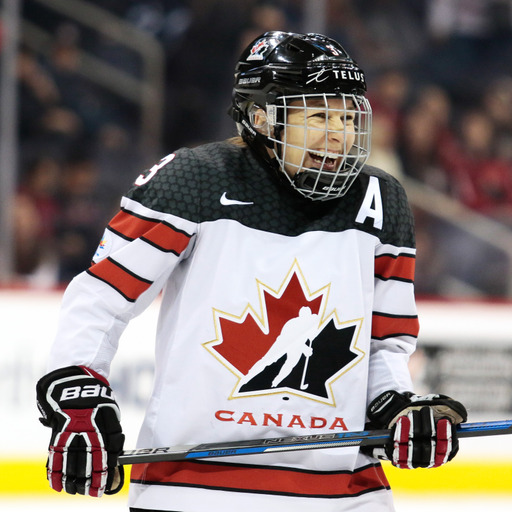
Jocelyn Larocque
Ice Hockey I Athlete
Jocelyne Larocque, a Metis woman from Ste. Anne, Man., was the first Indigenous woman to play hockey for Canada in the Olympic Games and then the first to win a gold medal. She was seen as the anchor of Team Canada and her skill as a defenceman played a large part in bringing home a gold medal at the 2014 Winter Olympics in Sochi and most recently a silver medal in the 2018 Winter Olympics PyeongChang. In 2018, Jocelyne won the Tom Longboat Award and in 2021 was named Manitoba's Indigenous Female Athlete of the Decade.
Jocelyne Larocque, une métisse de Ste. Anne, au Manitoba, a été la première femme autochtone à jouer au hockey pour le Canada aux Jeux olympiques, puis la première à remporter une médaille d'or. Elle était considérée comme la cheville ouvrière d'Equipe Canada et ses compétences en tant que défenseur ont joué un grand rôle pour remporter une médaille d'or aux Jeux olympiques d'hiver de 2014 à Sotchi et, plus récemment, une médaille d'argent aux Jeux olympiques d'hiver de 2018 à PyeongChang. En 2018, Jocelyne a remporté le prix Tom Longboat et, en 2021, a été nommée athlète féminine autochtone de la décennie du Manitoba.
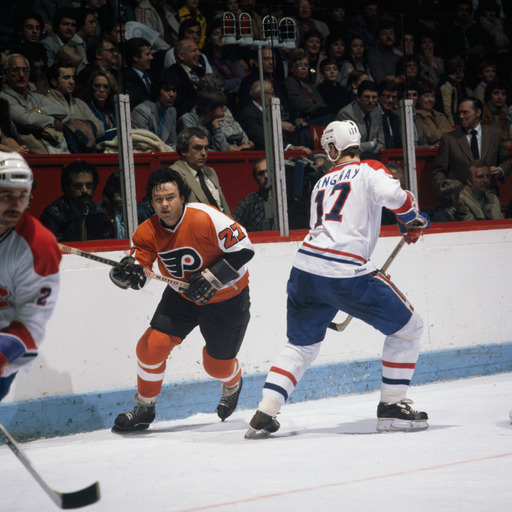
Reggie Leach
Ice Hockey I Athlete
Reggie Leach, a proud member of Berens River First Nation, was one of the greatest hockey players who ever came out of Manitoba. Selected by the Boston Bruins third overall in the 1970 National Hockey League draft, Leach played for 14 seasons in the NHL for four different teams. In 1975, "The Rifle" led the Philadelphia Flyers to the Stanley Cup by scoring an unprecedented 19 goals in 16 games. He was named the winner of the Conn Smythe Trophy as the most valuable player of the NHL playoffs Reggie was inducted into the Manitoba Hockey Hall of Fame, the Manitoba Sports Hall of Fame, the Philadelphia Flyers Hall of Fame, and received the Order of Manitoba and the Order of Canada. He also has an honorary Doctor of Laws degree from Brock University.
Reggie Leach, fier membre de la Première nation de Berens River, a été l'un des plus grands joueurs de hockey de l'histoire du Manitoba. Sélectionné par les Bruins de Boston au troisième rang du repêchage de la Ligue national de hockey de 1970, Leach a joué pendant 14 saisons dans la LNH pour quatre équipes différentes. En 1975, «The Rifle» a mené les Flyers de Philadelphie à la Coupe Stanley en marquant un nombre sans précédent de 19 buts en 16 matchs. Il a été nommé vainqueur du trophée Conn Smythe en tant que joueur le plus précieux des séries éliminatoires de la LNH. Reggie a été intronisé au Temple de la renommée du hockey du Manitoba, au Temple de la renommée des sports du Manitoba, au Temple de la renommée des Flyers de Philadelphie et a reçu l'Ordre du Manitoba et l'Ordre du Canada. Il est également titulaire d'un doctorat honorifique en droit de l'Université Brock.
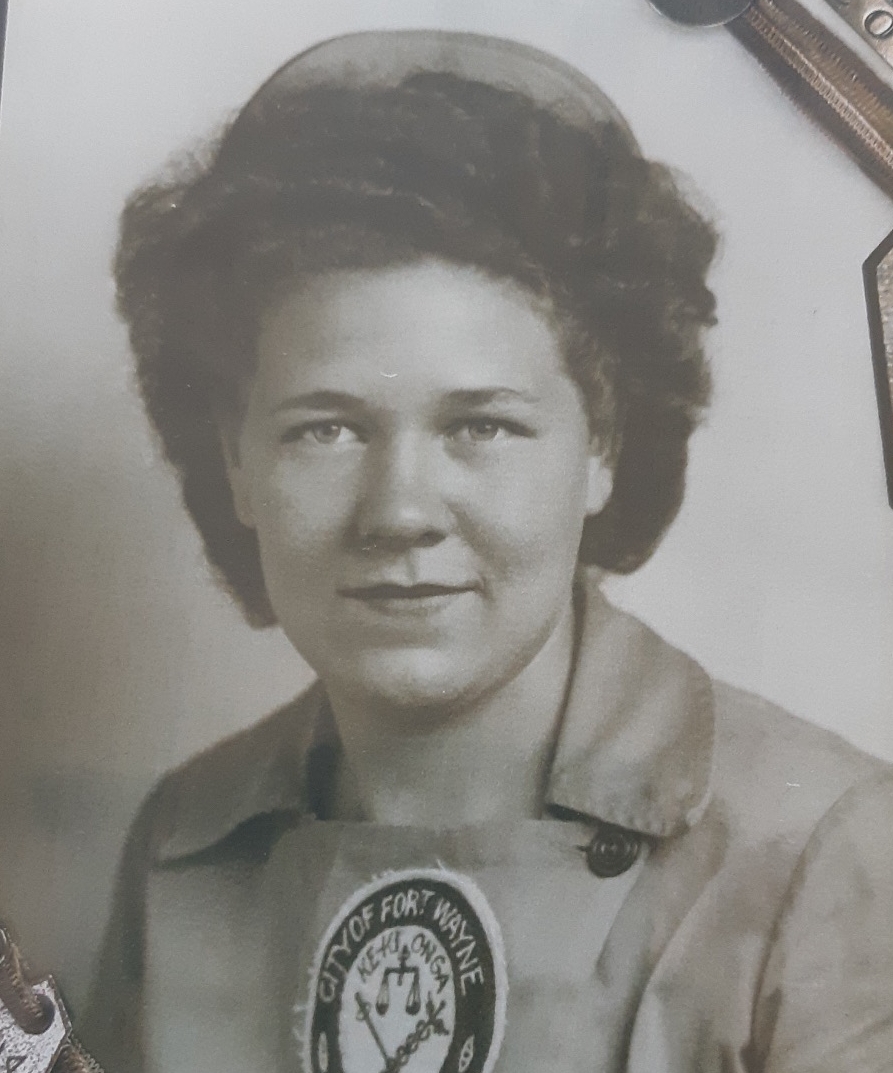
Yolande (Teillet) Schick
Baseball I Athlete
An outstanding catcher for the St. Vital Tigerettes softball team, the St. Vital-born Schick was scouted to play professional baseball. At age 17, she became the youngest player in the All-American Girls Professional Baseball League (AAGPBL). She played three seasons in the AAGPBL and in 1988, all the Canadian born players in the AAGPBL were inducted into the Canadian Baseball Hall of Fame. She was the grand niece of the Father of Manitoba, Louis Riel.
Attrapeur exceptionnel pour l'équipe de softball des Tigerettes de St. Vital, Schick, né à St. Vital, a été repéré pour jouer au baseball professionnel. À 17 ans, elle est devenue la plus jeune joueuse de la All-American Girls Professional Baseball League (AAGPBL). Elle a joué trois saisons dans l'AAGPBL et en 1988, tous les joueurs nés au Canada de l'AAGPBL ont été intronisés au Temple de la renommée du baseball canadien. Elle était la petite-nièce du père du Manitoba, Louis Riel.
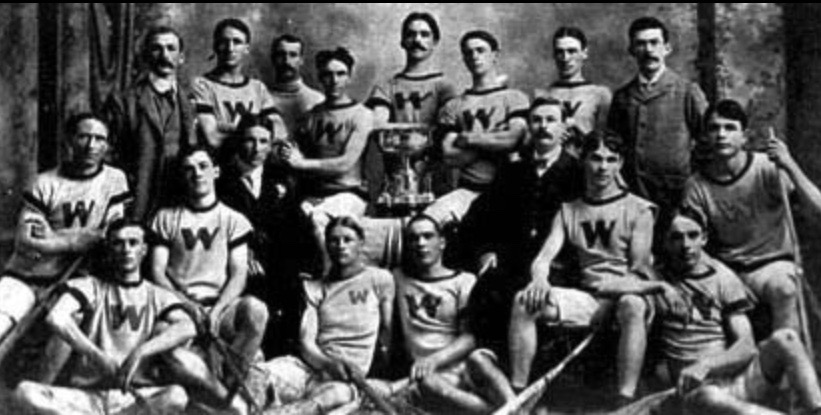
Jack Flett stands in the back row directly behind their trophy.
Jack Flett
Lacrosse I Athlete
One of Manitoba's first great Metis athletes, Kildonan's Jack Flett was a lacrosse player of international renown who played in the first Olympic lacrosse tournament in St. Louis in 1904 and helped Canada win gold. The leading defender on the Winnipeg Shamrocks, the team that represented Canada against the U.S. champion from St. Louis in the gold medal playoff. Canada won both matches, 6-1 and 8-2 winning Manitoba's first Olympic gold medal.
Un des premiers grands athlètes métis du Manitoba, Jack Flett de Kildonan était un joueur de crosse de renommée international qui a participé au premier tournoi olympique de crosse à St. Louis en 1904 et a aidé le Canada à remporter l'or. Le principal défenseur des Shamrocks de Winnipeg, l'équipe qui a représenté le Canada contre le champion américain de Saint-Louis lors des éliminatoires pour la médaille d'or. Le Canada a remporté les deux matchs, 6-1 et 8-2. remportant la première médaille d'or olympique du Manitoba.
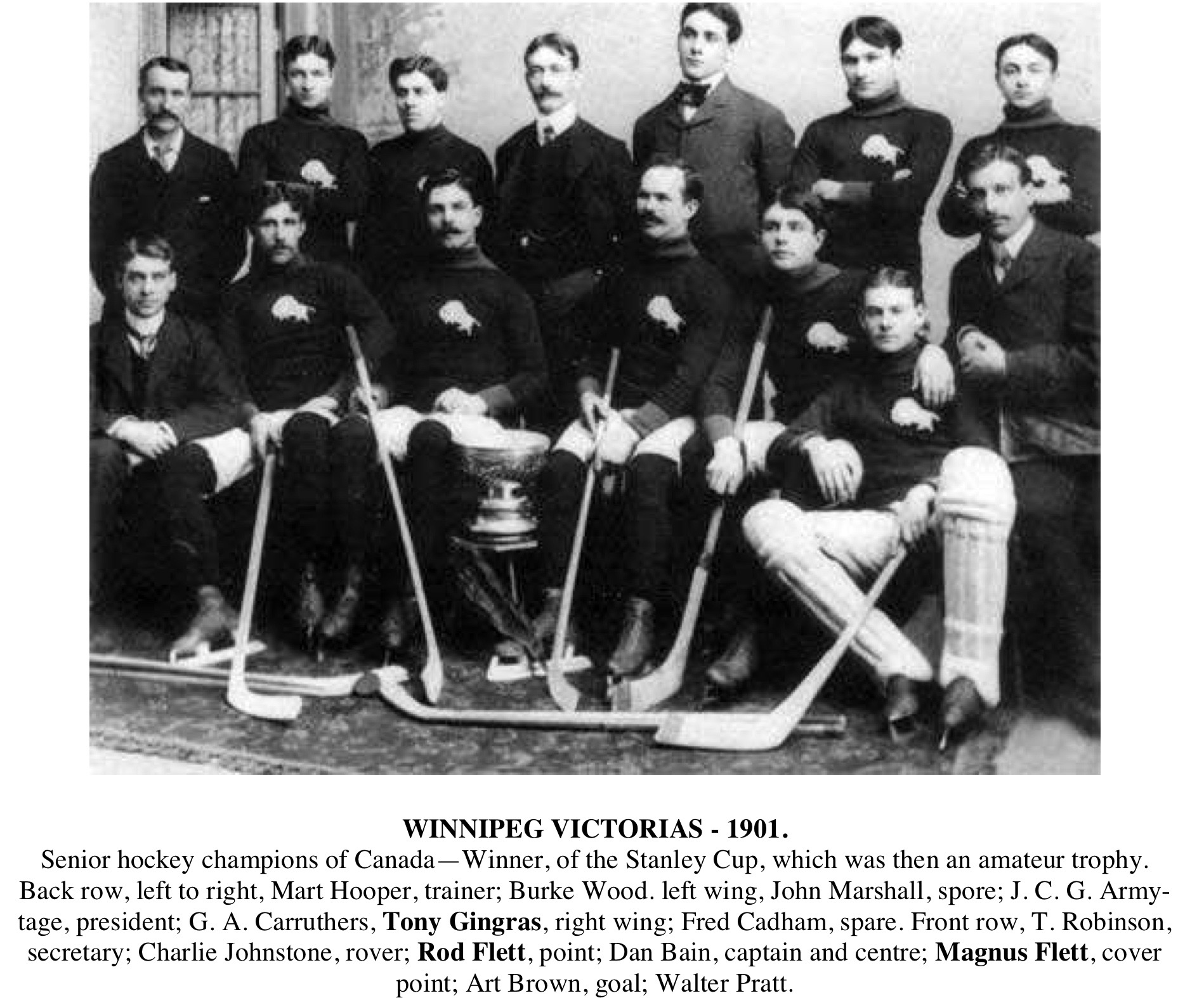
Rod and Magnus Flett
Ice Hockey I Athletes
The younger brothers of Jack Flett, the great Metis athlete from Kildonan, Man., Rod and Magnus were two of the greatest ice hockey players in the world at the turn of the 20th Century. Rod played the point position, now known as left defence, while his younger brother Magnus played cover point or right defence today. Rod played on nine Manitoba championship hockey teams and was a three-time member of the Stanley Cup champion Winnipeg Victorias (1896, 1901 and 1902) while younger brother Magnus played on the 1901 and 1902 Stanley Cup championship teams.
Les jeunes frères de Jack Flett, le grand athlète métis de Kildonan, au Manitoba, Rod et Magnus étaient deux des plus grands joueurs de hockey dur glace du monde au tournant du 20e siècle. Rod a joué la position de point, maintenant connue sous le nom de défense gauche, tandis que son jeune frère Magnus a joué le point de couverture or la défense droite aujourd'hui. Rod a joué dans neuf équipes de hockey de championnat du Manitoba et a été trois fois membre du champion de la coupe Stanley Winnipeg Victorias (1896, 1901 et 1902) tandis que son jeune frère Magnus a joué dans les équipes de championnat de la coupe Stanley de 1901 et 1902.
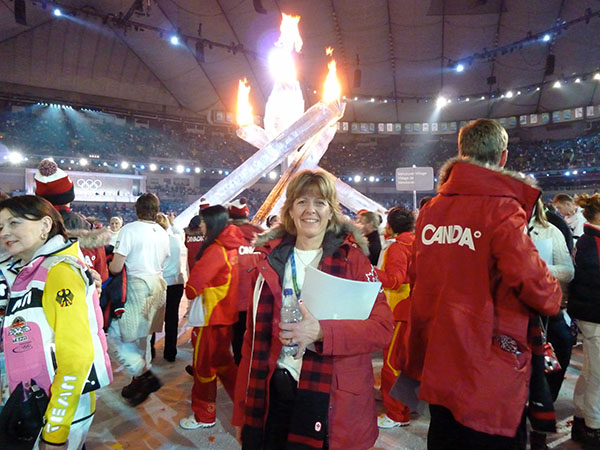
Photo courtesy of Indigenous Crown Relations Canada.
Carolyn Darbyshire-McRorie
Curling I Athletes
A Metis athlete born in Arborg, Manitoba, Carolyn Darbyshire learned to curl at her mother's side in Portage la Prairie. She and her mother Merline won the Manitoba Provincials in 1985 and then she married and moved to Calgary to run a business with her husband and pursue curling stardom. In 2010, while playing second on Cheryl Bernard's Calgary team she won a silver medal at the Vancouver Winter Olympic Games to give Canada it's best finish in Olympic women's curling since Nagano in 1998.
Athlète métisse née à Arborg, au Manitoba, Carolyn Darbyshire a appris à jouer au curling aux côtés de sa mère à Portage la Prairie. Elle et sa mère Merline ont remporté les Provinciaux du Manitoba en 1985, puis elle s'est mariée et a déménagé à Calgary pour diriger une entreprise avec son mari et devenir la célébrité du curling. En 2010, alors qu'elle jouait deuxième dans l'équipe de Calgary de Cheryl Bernard, elle a remporté une médaille d'argent aux Jeux olympiques d'hiver de Vancouver pour donner au Canada le meilleur résultat en curling olympique féminin depuis Nagano en 1998.
Contact Us
105-145 Pacific Avenue
Winnipeg, Manitoba, Canada, R3B 2Z6
x 204-925-5737 A mel.whitesell@masrc.com